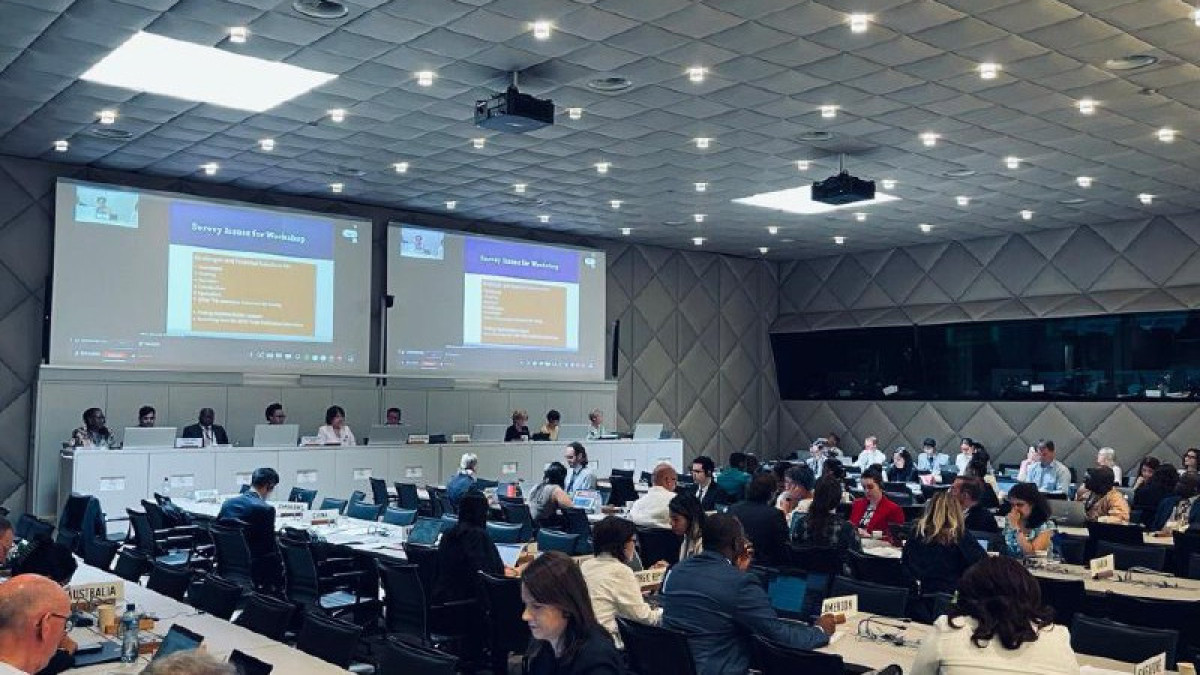
Kazakhstan moderates WTO dedicated session on transit

EL.KZ Информационно-познавательный портал
Permanent Representative of the Republic of Kazakhstan to the World Trade Organization and International Economic Organizations Zhanar Aitzhan moderated the WTO dedicated session on transit for landlocked developing countries “Overcoming problems in trade and transit operations.», El.kz cites MFA.
The purpose of this workshop is an in-depth study of best practices, including constraints and challenges faced by landlocked developing countries (LLDCs), as well as the exchange of experience of WTO member countries to identify best practices and recommendations in the implementation of transit operations.
The keynote speakers of the event included Ambassador of Paraguay Raul Cano Riccardi, Chairman of the WTO Committee on Trade Facilitation Carlos Guevara, experts from the World Bank, the UN Conference on Trade and Development (UNCTAD), UN Office of the High Representative for the Least Developed Countries, Landlocked Developing Countries and Small Island Developing States, the World Customs Organization, as well as representatives of government agencies of Mongolia, Pakistan, Zimbabwe, Gabon and Eswatini.
In her opening speech, the Permanent Representative Aitzhan noted that the LLDC countries, separated from the coastlines and major international trade routes, bear the brunt of limited access to maritime ports, longer transport distances, and higher transit costs. Consequently, according to the Ambassador of Kazakhstan, these hindrances impede the ability of LLDCs to fully integrate into global trade, hampering economic growth, sustainable development, and poverty reduction efforts.
The Permanent Representative Aitzhan also noted that the implementation of the WTO Agreement on Trade Facilitation (TFA) is crucial to facilitate the flow of goods across the border. As recommendations, the importance of improving transport links, the use of digital technologies, and reducing trade costs through digital processing of customs data, including the electronic platform of UNCTAD “ASYCUDA”, was noted.
According to a UNCTAD expert, according to the results of a transit survey among WTO member countries, when implementing the WTO Agreement on Trade Facilitation, such major problems as collaboration across borders, varying formalities and procedures with neighboring countries, capacity issues (due to high of staff), lack of a national transit coordinator, etc. are identified.
The expert of the Common Market of Eastern and Southern Africa (COMESA) in his presentation noted that COMESA had implemented a Regional System of Customs Transit Guarantees to solve delays at border crossing points, long vehicle turn-around/transit time, as well as simplify the customs clearance process and reduce the cost of the guarantee. At the same time, this system is fully operational in Burundi, Kenya, Rwanda, Tanzania, Uganda, and the African Export-Import Bank, while Congo, Malawi, Zimbabwe and Zambia are in the process of fully joining this customs system.
The representative of the Department of Foreign Trade and Economic Cooperation of the Ministry of Foreign Affairs of Mongolia, Ariunaa Adiya, in her speech noted that the priorities for her country in the implementation of the TFA are the introduction of a Single Window for export-import and transit operations, modernization of transport infrastructure and increased competition in the transport services market, the creation of dry or multimodal ports, the introduction of paperless trade solutions in the field of customs clearance as well as digitalization delivery services to ensure uninterrupted processing and mail tracking.
In conclusion, the Permanent Representative of the Republic of Kazakhstan Aitzhan urged LLDC members to accelerate the implementation of tools developed by international organizations, particularly by UNCTAD, to reduce transit time and costs, simplify trade procedures, increase transparency and ensure certainty in cross-border trade.

